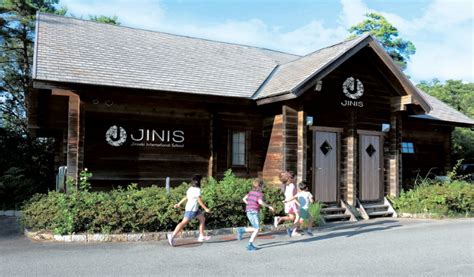Immerse Yourself in Japanese Culture and Education

Japanese boarding schools offer a unique and enriching educational experience for international students seeking to immerse themselves in Japanese culture and language. With a strong focus on academic excellence, traditional values, and global citizenship, these schools provide a transformative environment that nurtures personal growth, academic success, and cross-cultural understanding.
Academic Excellence and Global Recognition
Japanese boarding schools are renowned for their rigorous academic standards and consistently high university placement rates. The International Baccalaureate (IB) and Advanced Placement (AP) programs are widely offered, allowing students to prepare for university study in Japan and abroad. Many graduates of Japanese boarding schools go on to attend prestigious universities worldwide, including the University of Tokyo, Kyoto University, and Harvard University.
According to the Japan Student Services Organization (JASSO), in 2022, over 90% of Japanese boarding school graduates went on to higher education, with 75% pursuing studies in Japan and 25% studying abroad.
Traditional Values and Cultural Immersion
Japanese boarding schools are deeply rooted in Japanese culture and traditions. Students participate in daily rituals such as morning assemblies, tea ceremonies, and calligraphy lessons. They also have ample opportunities to engage with the local community through cultural exchange programs, homestay experiences, and festivals.
Global Citizenship and Cross-Cultural Understanding
With a diverse student body representing over 50 countries, Japanese boarding schools foster a global perspective among their students. Students engage in cross-cultural activities and collaborate on projects with peers from different backgrounds, developing empathy, tolerance, and a deep understanding of the interconnectedness of the world.
Campus Life and Facilities
Japanese boarding schools typically offer a wide range of campus facilities, including:
- State-of-the-art classrooms and libraries
- Modern dormitories with private rooms and shared amenities
- Athletic fields, gymnasiums, and swimming pools
- Student clubs and organizations
- Health and counseling services
Types of Japanese Boarding Schools
There are two main types of Japanese boarding schools:
- Independent schools: These schools are privately funded and managed, offering a variety of educational programs, including academic, vocational, and special needs education.
- Public boarding schools: These schools are funded by the government and typically offer a more traditional academic curriculum.
Admission Requirements and Tuition Fees
Admission requirements for Japanese boarding schools vary depending on the school and program. Key factors considered include academic performance, language proficiency, and character references. Tuition fees also vary widely, ranging from ¥1,000,000 to ¥3,000,000 (US$7,000-21,000) per year.
Benefits of Studying at a Japanese Boarding School
- Academic excellence and university placement: High-quality education with a focus on academic achievement and university preparedness.
- Cultural immersion and language acquisition: Intensive exposure to Japanese culture and language, leading to increased fluency and cultural understanding.
- Global citizenship and cross-cultural exchange: Opportunities to interact with students from diverse backgrounds, fostering empathy and a global perspective.
- Character development and personal growth: A supportive and nurturing environment that promotes self-reliance, resilience, and leadership skills.
- Career opportunities: Japanese boarding school graduates are highly sought after by employers in Japan and abroad, due to their academic achievements, cultural competence, and global mindset.
Common Mistakes to Avoid
- Underestimating the academic rigor: Japanese boarding schools have high academic standards, and students should be prepared for a challenging and demanding environment.
- Neglecting language learning: Proficiency in Japanese is essential for academic success and cultural immersion. Students should prioritize language study before and during their time at boarding school.
- Avoiding cultural experiences: Cultural immersion is a key part of the boarding school experience. Students should actively participate in traditional activities and engage with the local community.
- Ignoring health and well-being: Boarding school can be physically and emotionally demanding. Students should prioritize self-care, including regular exercise, healthy sleep, and stress management.
- Failing to seek support: Boarding school life can sometimes be challenging. If students encounter difficulties, they should not hesitate to seek support from faculty, advisors, or peers.
Frequently Asked Questions
-
What is the average age of students at Japanese boarding schools?
Most Japanese boarding schools accept students aged 15-18. -
Do Japanese boarding schools offer scholarships?
Yes, some schools offer scholarships based on academic merit, financial need, or other criteria. -
Can international students apply to Japanese boarding schools?
Yes, many schools welcome international students. However, proficiency in Japanese is typically required. -
How long is the academic year at Japanese boarding schools?
The academic year typically runs from April to March, with a summer break and two shorter breaks during the year. -
What is the cost of living in Japan as an international student?
Living costs vary depending on location and lifestyle, but students can expect to spend around ¥100,000-200,000 (US$700-1,400) per month on accommodation, food, and other expenses. -
What are the career prospects for graduates of Japanese boarding schools?
Graduates of Japanese boarding schools are highly sought after by employers in a variety of fields, including education, business, technology, and the arts.
Conclusion
Japanese boarding schools provide an exceptional educational experience that combines academic excellence with cultural immersion. By choosing to study at a Japanese boarding school, international students gain a deep understanding of Japanese culture and language, develop a global perspective, and acquire the skills and knowledge necessary for success in university and beyond.
